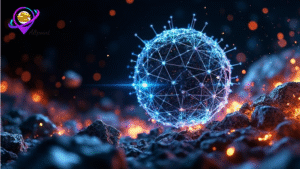AI Revolutionizes Game Testing Process
Game development studios have traditionally viewed testing as a necessary but slow and expensive part of the process. Human testers work through repetitive tasks, checking for bugs and glitches that could ruin player experiences. But a new study from Zhejiang University and NetEase Fuxi AI Lab suggests this might be changing sooner than we thought.
Researchers developed an AI agent called Titan that uses large language model reasoning to explore and evaluate massive online role-playing games. The system was tested across two commercial titles, and the results were quite surprising. Titan managed to complete 95% of assigned testing tasks while also discovering four previously unknown bugs that human testers had missed.
Cost Savings and Efficiency Gains
Game testing represents one of the most expensive phases in game production. Studios spend millions on labor and months of turnaround time just to ensure their games work properly. According to market research firm Dataintello, the global game testing service market is projected to reach $5.8 billion by 2032. That’s a lot of money tied up in manual testing processes.
What makes Titan interesting is how it approaches testing. The researchers designed the workflow to mirror how expert human testers operate in MMORPG environments. The system perceives the game state, chooses meaningful actions, reflects on progress, and diagnoses issues. At its core, a foundation model handles the high-level reasoning while supporting modules provide perception, action scaffolding, and diagnostic capabilities.
How Titan Actually Works
During experiments, Titan’s perception module translated complex game states into simplified text, allowing the program to reason through objectives logically. The agent also used screenshots to review its own progress and recover when it got stuck. This self-correction mechanism proved particularly valuable in complex gaming environments where paths aren’t always straightforward.
Human testers often follow familiar patterns and routes through games, which can leave some areas under-tested. Existing automated bots have struggled with generalization across different game versions. Titan seems to bridge that gap by combining AI reasoning with structured testing methodologies.
The Human Element Still Matters
Despite Titan’s impressive performance, the researchers didn’t rely solely on AI to conduct their study. They worked with professional testers and designers to identify key state factors relevant to general progress in MMORPGs. These template references included player location, current objectives, and player vitals like health and mana.
The system filters out what researchers called “irrelevant data”—information about other players, for instance—unless specifically needed for a testing scenario. This selective focus helps the AI avoid getting bogged down in unnecessary details while maintaining its testing efficiency.
This research comes at a time when the gaming industry is rapidly embracing AI tools. A recent Google Cloud survey found that nearly 90% of game developers have already integrated AI agents into their workflows. Industry leaders are warning that studios that don’t adopt these technologies might struggle to remain competitive.
While Titan shows remarkable potential, I think we’re still in the early stages of understanding how AI and human testers can best work together. The technology isn’t about replacing people entirely but rather augmenting their capabilities and handling the more repetitive aspects of testing. This could free up human testers to focus on more creative testing scenarios and complex problem-solving tasks that require genuine human intuition.






